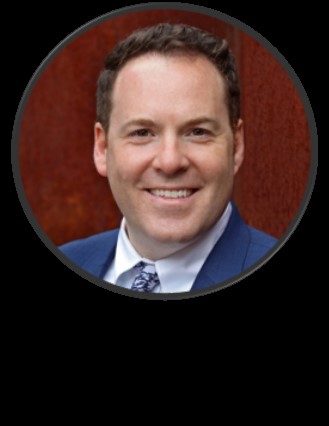
Doctors of BC and the Specialist Services Committee (SSC) work on behalf of specialist physicians to effectively lead and champion change that improves both provider and patient experience. The establishment and success of the Community-Based Specialists (CBS) Working Group, co-chaired by Dr Tommy Gerschman, is an example of this commitment.
Early in 2020, the Doctors of BC board, with endorsement from the Representative Assembly, acknowledged the unique concerns of community-based specialists, and the need for SSC to increase support for this group. Through Dr Gerschman’s leadership, the CBS Working Group was established to work through the unique challenges specialists face in their community-based practices. For some specialists without hospital privileges this also can mean a disconnect from vital resources and information. "We saw common themes across different specialties, but also unique needs, particularly for those who practice only in the community," he observed.
The COVID-19 pandemic further exacerbated these challenges, as resources and attention were often directed towards hospitals and primary care. This highlighted the vulnerability of Community-Based Specialists, who provide direct patient care outside of hospital settings.
Over the past four years, Dr Gerschman noted the CBS Working Group has fostered a sense of recognition and inclusion for community-based specialists. Events and resources organized by the group have provided much needed support, bridging gaps in access to tools like Translation Services, CareConnect, and medical databases.
While acknowledging the broader goals of equity and access within the CBS initiative, Dr Gerschman noted that addressing the daily business pressures faced by physicians, was another ongoing need. This pressure led to a recent AI pilot project, exploring how technology could alleviate administrative burdens, particularly in clinical documentation.
"The opportunity with this AI pilot was to examine an emerging tool with the potential to significantly impact the administrative burden physicians face with clinical documentation," Dr Gerschman explained. He highlighted that it seemed that early AI tools were primarily designed for primary care and many specialists found them lacking for their unique requirements. The pilot provided specialists a chance to explore various AI solutions with extended trial periods and options to support customization.
A key outcome was the creation of a supportive specialist community. "The most powerful aspect was that people felt they weren't alone," Dr Gerschman shared. "They could exchange ideas, troubleshoot problems, and support each other." This collaborative approach proved invaluable in reducing the isolation and uncertainty often felt when adopting new technologies.
The pilot also allowed physicians to test various AI tools without a commitment to long-term use. Dr Gerschman stressed that this enabled physicians to make more informed decisions about which products best suited their practices.
Specialists frequently noted that more focused interactions led to a better history-taking experience. Dr Gerschman observed the full potential of AI tools has yet to be realized, as the technology continues to evolve, and its application becomes more refined. He pointed to AI-generated patient summaries as an example, emphasizing their potential to enhance the patient experience while underscoring the need for seamless integration into the patient encounter workflow.
The work of Dr Gerschman and the CBS Working Group underscores the ongoing commitment to supporting community-based specialists. By addressing their unique needs and leveraging innovative solutions like AI, Doctors of BC and the SSC are working to ensure that all physicians have the resources they need to provide optimal care.



